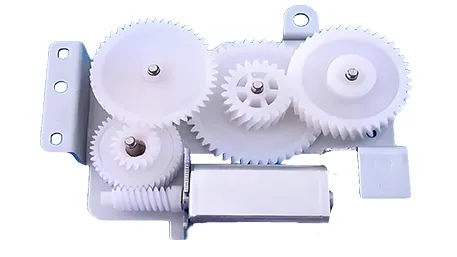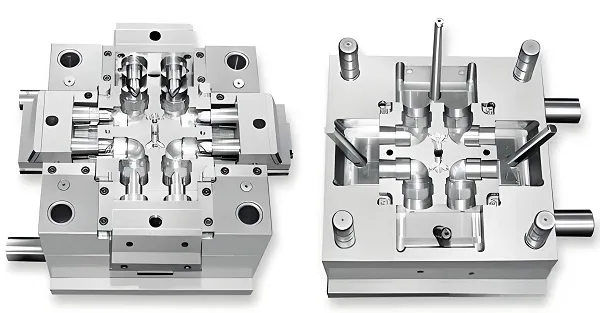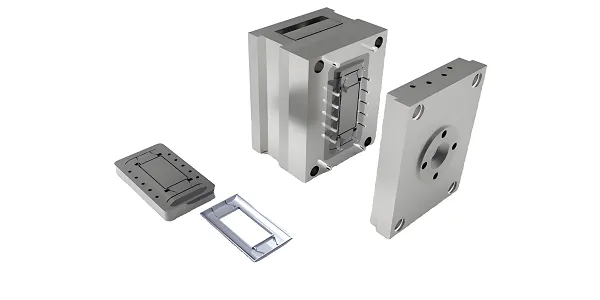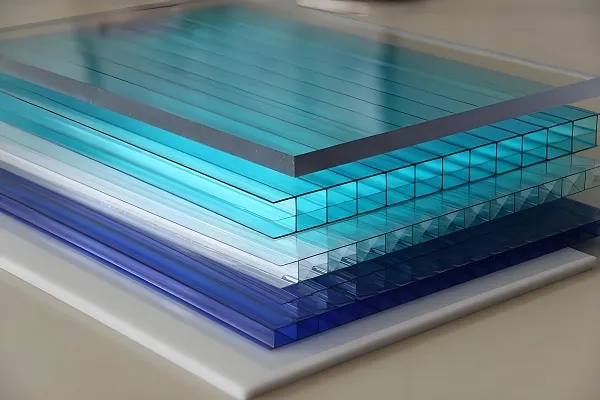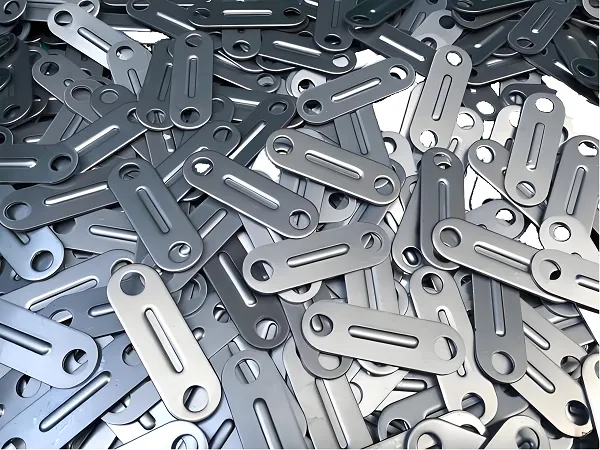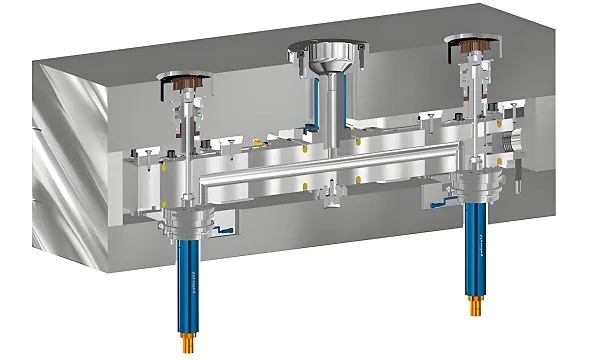In the highly competitive and technologically advanced automotive industry, the pursuit of enhanced performance, reliability, and safety drives the demand for precision – made components. CNC machining has emerged as a cornerstone technology in car part manufacturing, enabling the production of high – quality, customized parts with unparalleled accuracy and efficiency. This article delves into the technical capabilities, customization process, material selection, quality control, and industry applications of CNC machining car parts, highlighting its pivotal role in shaping the future of automotive engineering.
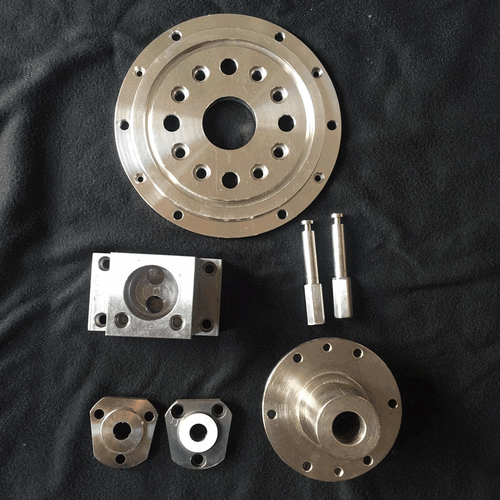
I. Technical Capabilities: Unleashing Precision in Automotive Manufacturing
(A) Exceptional Dimensional Accuracy
CNC machining systems are meticulously calibrated to achieve outstanding dimensional accuracy in car part production. With positioning accuracy reaching ±0.002mm and repeat positioning accuracy of ±0.003mm, we can fabricate components with extremely tight tolerances. For engine components like pistons, where the diameter tolerance can significantly impact combustion efficiency, or for transmission shafts that require precise fits to minimize power loss, these precise dimensional controls ensure optimal performance. This level of accuracy reduces the need for post – machining adjustments, saving time and enhancing the overall reliability of the assembled vehicle.
(B) Complex Geometry Machining
Five – axis CNC machining technology revolutionizes the production of car parts with complex geometries. From the intricate internal passages of engine blocks designed for efficient coolant and oil flow to the organic – shaped components of aerodynamic body kits, the five – axis system can execute these designs with remarkable precision. Compared to traditional machining methods, five – axis CNC machining reduces setup – related errors from ±0.01mm to within ±0.003mm. It also boosts production efficiency by over 60%, allowing for the rapid manufacturing of custom car parts, even those with the most elaborate designs. This capability is crucial for automotive manufacturers aiming to stay ahead in terms of both functionality and aesthetics.
(C) High – Speed and High – Precision Machining
To meet the high – volume production demands of the automotive industry while maintaining precision, CNC machining systems are designed for high – speed operations. Advanced spindle speeds of up to 30,000 RPM and rapid traverse rates enable fast material removal without sacrificing accuracy. Automated tool changers and pallet systems ensure continuous operation, minimizing downtime and increasing productivity. In the production of aluminum alloy wheels, for example, high – speed CNC machining can complete the machining process in a fraction of the time compared to conventional methods, all while maintaining the required surface finish and dimensional accuracy.
II. End – to – End Customization: Tailoring Parts to Your Automotive Vision
(A) In – Depth Requirement Analysis and Design Conceptualization
When you approach us with your car part requirements, our experienced engineering team initiates detailed discussions to understand your specific automotive application. We consider factors such as the type of vehicle (sports car, sedan, SUV, etc.), the vehicle’s performance goals (fuel efficiency, power, speed), the operating environment (urban, rural, extreme weather conditions), and any specific functional or aesthetic requirements. Using state – of – the – art CAD/CAM software, we generate multiple design concepts that take into account these factors. We then collaborate closely with you, refining the designs until they perfectly align with your vision and the needs of your automotive project. Whether you need a custom – designed intake manifold for enhanced engine performance or a unique trim piece for a personalized look, we’ve got you covered.
(B) Strategic Material Selection and Cost Analysis
Based on the finalized design, we recommend the most suitable materials for your car parts. Different materials offer varying combinations of strength, weight, durability, and cost, which are all critical considerations in automotive manufacturing. For engine components that need to withstand high temperatures and mechanical stress, materials like alloy steels (such as 4140 and 4340) and cast iron are commonly used. For lightweight applications in the vehicle body and interior, aluminum alloys (such as 6061 – T6 and 7075 – T6) and magnesium alloys are preferred to improve fuel efficiency. Simultaneously, we conduct a detailed cost analysis, factoring in material costs, machining complexity, production volume, and any additional finishing or treatment requirements, to provide you with a transparent and competitive quote.
(C) Precision Manufacturing and Order Tracking
Once you approve the design and quote, production commences. You can monitor the progress of your order in real – time through our dedicated online tracking platform. Our skilled technicians operate advanced CNC turning, milling, drilling, and grinding machines, adhering to strict manufacturing standards to produce car parts that meet the highest quality benchmarks. We keep you informed at every stage of the production process, from raw material procurement to the final inspection, ensuring complete transparency and peace of mind throughout the manufacturing journey.
(D) Rigorous Quality Assurance and Timely Delivery
After production, each car part undergoes a rigorous quality inspection. Only parts that meet our exacting standards are shipped to you. We perform dimensional inspections using coordinate measuring machines (CMMs) to ensure that all critical dimensions are within ±0.002mm. Surface finish measurements are taken to ensure that the surface meets the required roughness specifications for optimal functionality and aesthetics. In addition, we conduct mechanical tests, such as tensile strength testing, fatigue testing, and hardness testing, to validate the performance of the parts. For safety – critical components, we also perform non – destructive testing methods, such as ultrasonic testing and X – ray inspection, to detect any internal defects. We offer comprehensive after – sales support and ensure timely delivery to keep your automotive production on schedule.
III. Strategic Material Selection: Optimizing Performance and Efficiency
(A) Alloy Steels
Alloy steels are a staple in automotive part manufacturing due to their high strength and durability. 4140 alloy steel, containing chromium, molybdenum, and manganese, offers excellent strength and hardenability. It is commonly used for components like shafts, gears, and connecting rods in engines and transmissions, where it can withstand high torque and bending forces. 4340 alloy steel, with its higher nickel content, provides even greater strength and fatigue resistance, making it suitable for critical components in high – performance vehicles, such as racing car engines and axles.
(B) Aluminum Alloys
Aluminum alloys have gained significant popularity in the automotive industry for their lightweight properties, which contribute to improved fuel efficiency and vehicle performance. 6061 – T6 aluminum alloy offers a good balance of strength, corrosion resistance, and machinability. It is often used for components such as engine mounts, suspension arms, and interior trim pieces. 7075 – T6 aluminum alloy, on the other hand, is a high – strength alloy with a tensile strength of up to 572 MPa. It is ideal for applications where maximum strength – to – weight ratio is required, such as in aerospace – inspired automotive designs and high – performance sports cars.
(C) Magnesium Alloys
Magnesium alloys are the lightest of all structural metals, making them an attractive option for automotive applications where weight reduction is a top priority. With a density of approximately 1.8 g/cm³, they can significantly reduce the overall weight of a vehicle. Magnesium alloys are commonly used for components such as steering wheels, gearbox housings, and engine covers. However, they require special handling and processing due to their low melting point and high reactivity with oxygen.
(D) Cast Iron
Cast iron has a long – standing history in automotive manufacturing, especially for engine blocks and cylinder heads. It offers excellent wear resistance, high thermal conductivity, and good casting properties. Gray cast iron, with its graphite flakes, provides good damping characteristics, reducing engine vibrations. Ductile cast iron, with improved mechanical properties including higher tensile strength and impact resistance, is suitable for more demanding applications within the engine.
IV. Stringent Quality Control: Ensuring Safety and Reliability
(A) Raw Material Inspection
All incoming raw materials for car parts are subject to strict quality checks. We use spectroscopic analysis to verify the chemical composition of the materials, ensuring that they meet the required standards. Additionally, hardness testing, tensile testing, and microstructure analysis are performed to ensure the material’s integrity and suitability for the intended application. For example, when using alloy steel, we confirm that the alloying element ratios and mechanical properties are within the specified ranges, guaranteeing the quality of the starting material for our car parts.
(B) In – Process Monitoring
Throughout the manufacturing process, we employ statistical process control (SPC) techniques to monitor key manufacturing parameters. Regular sampling and data collection help us identify and correct any potential issues promptly. We monitor parameters such as cutting speeds, feed rates, tool wear, and the temperature during machining, heat – treatment processes, and other operations. If any parameter deviates from the set values, we can adjust the process in real – time to ensure consistent product quality, maintaining the precision and reliability of each car part.
(C) Final Product Validation
Before shipping, each car part undergoes a comprehensive inspection. We use CMMs to verify dimensional accuracy, ensuring that all critical dimensions are within ±0.002mm. Surface roughness measurements are taken to ensure that the surface finish is optimized for the part’s intended function. Non – destructive testing methods, such as ultrasonic testing, magnetic particle inspection, and X – ray inspection, are used to detect any internal or surface – breaking defects. Only parts that pass all these tests are considered ready for delivery, ensuring that the car parts you receive are of the highest quality and meet the strict safety and reliability standards of the automotive industry.
V. Diverse Industry Applications: Transforming Automotive Performance
(A) Engine Components
CNC – machined engine components are essential for the performance and reliability of automotive engines. From cylinder heads with precisely machined combustion chambers and valve seats to crankshafts with accurate journal diameters and counterweights, every component plays a crucial role in the engine’s operation. Our precision – machined engine parts ensure optimal fuel combustion, efficient power transfer, and reduced emissions, contributing to improved engine performance, better fuel economy, and a more environmentally friendly vehicle.
(B) Transmission Systems
Transmission systems require high – precision components to ensure smooth gear shifting and efficient power transmission. CNC – machined gears, shafts, and housings for transmissions are designed to meet the strictest tolerances, minimizing backlash and noise. Our custom – made transmission components are engineered to withstand the high torque and stress generated during operation, providing reliable performance and long service life. Whether it’s a manual or automatic transmission, our parts help enhance the overall driving experience.
(C) Suspension and Steering Systems
Suspension and steering systems are critical for vehicle handling, stability, and safety. CNC – machined components such as control arms, tie rods, and steering knuckles are manufactured with precision to ensure accurate alignment and smooth operation. The use of high – strength materials and advanced machining techniques in these components enhances their durability and performance, providing a comfortable and safe driving experience. By reducing vibrations and improving responsiveness, our parts contribute to better vehicle control on the road.
(D) Vehicle Bodies and Interior Components
In addition to mechanical components, CNC machining is also used for manufacturing vehicle bodies and interior components. Lightweight aluminum alloy body panels, machined with precision, reduce the vehicle’s overall weight, improving fuel efficiency and performance. Interior components such as dashboard frames, door handles, and trim pieces are also CNC – machined to achieve high – quality aesthetics and functionality, enhancing the overall comfort and luxury of the vehicle interior. Custom – designed body and interior parts can also give a vehicle a unique and personalized look.
VI. Frequently Asked Questions (FAQ)
(A) What is the typical precision of CNC – machined car parts?
Our CNC machining can achieve a dimensional tolerance of ±0.002mm, ensuring a precise fit and optimal performance in automotive systems. This level of precision helps ensure that all components work together seamlessly to deliver the best possible vehicle performance.
(B) How long does it take to produce custom car parts?
Lead times vary depending on the complexity of the design, the materials used, and the order quantity. Simple designs can be completed in 3 – 5 days, while more complex ones may take 7 – 10 days. Rush orders are available upon request to meet tight production schedules, allowing you to get the parts you need when you need them.
(C) Can you customize car parts according to specific vehicle models?
Yes, our team of experts can work closely with you to understand the specific requirements of different vehicle models and create custom car parts that are a perfect fit. We have in – depth knowledge of various automotive platforms and can design and manufacture parts that integrate seamlessly with existing vehicle systems.
(D) What types of materials can be used for CNC – machined car parts?
We can work with a wide range of materials, including alloy steels, aluminum alloys, magnesium alloys, cast iron, and some engineering plastics. Our engineers will recommend the most suitable material based on your application requirements, performance goals, and budget, ensuring that you get the best combination of quality and cost – effectiveness.
(E) How do you ensure the quality of CNC – machined car parts?
We have a comprehensive quality control system in place, including raw material inspection, in – process monitoring, and final product validation. All parts are inspected using advanced measuring equipment and undergo various mechanical tests to ensure they meet our high – quality standards and the strict requirements of the automotive industry. Our commitment to quality means that you can trust our parts to perform reliably in your vehicles.
VII. Customer Testimonials
A high – performance automotive manufacturer approached us to develop custom aluminum alloy engine mounts for their new line of sports cars. Our team utilized advanced CNC machining and material selection techniques to create engine mounts that met the strict weight – reduction and strength requirements. The new engine mounts not only reduced the vehicle’s weight by 15% but also improved its handling and performance on the track. The manufacturer was highly satisfied with the quality and performance of our custom car parts, leading to a long – term partnership.
An automotive parts supplier needed custom – made steel gears for their transmission systems. We designed and manufactured the gears using CNC hobbing and grinding processes, ensuring precise tooth profiles and high – strength performance. The high – precision gears reduced gear – shifting times and increased the overall efficiency of the transmissions. The supplier reported a significant decrease in customer complaints and an improvement in product reliability, thanks to the quality of our CNC – machined car parts.
Reach Out Now for Your CNC Machined Car Parts!
Whether you are an automotive manufacturer looking to enhance the performance of your vehicles, a parts supplier in need of high – quality components, or an automotive enthusiast seeking custom parts for your project, our team of experts is ready to assist. We offer a seamless end – to – end service, from design and material selection to manufacturing and quality assurance. Contact us today to discuss your project requirements and take the first step towards achieving automotive excellence with our precision – engineered CNC machined car parts.
Whether you are an automotive manufacturer looking to enhance the performance of your vehicles, a parts supplier in need of high – quality components, or an automotive enthusiast seeking custom parts for your project, our team of experts is ready to assist. We offer a seamless end – to – end service, from design and material selection to manufacturing and quality assurance. Contact us today to discuss your project requirements and take the first step towards achieving automotive excellence with our precision – engineered CNC machined car parts.

